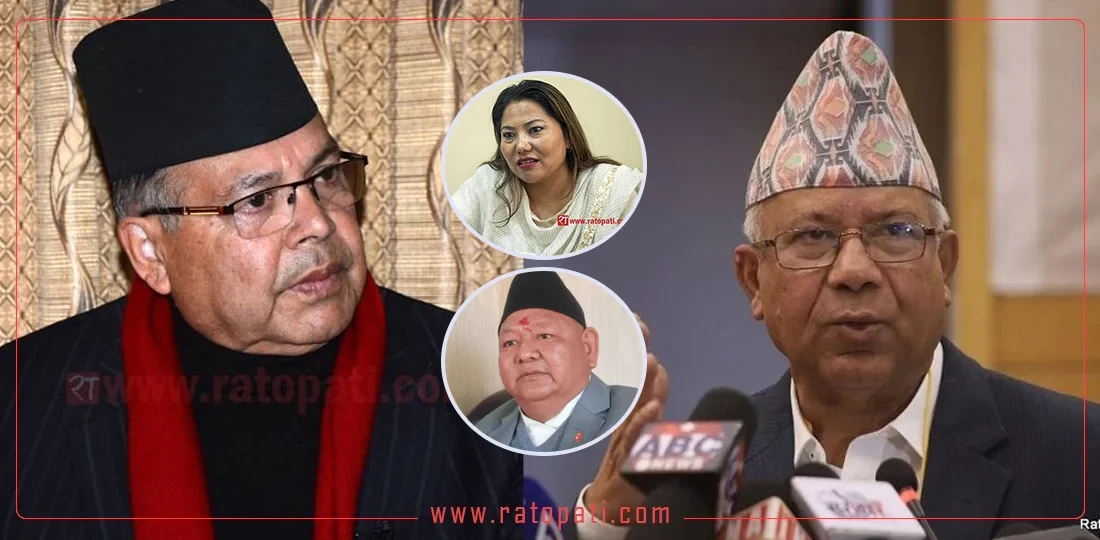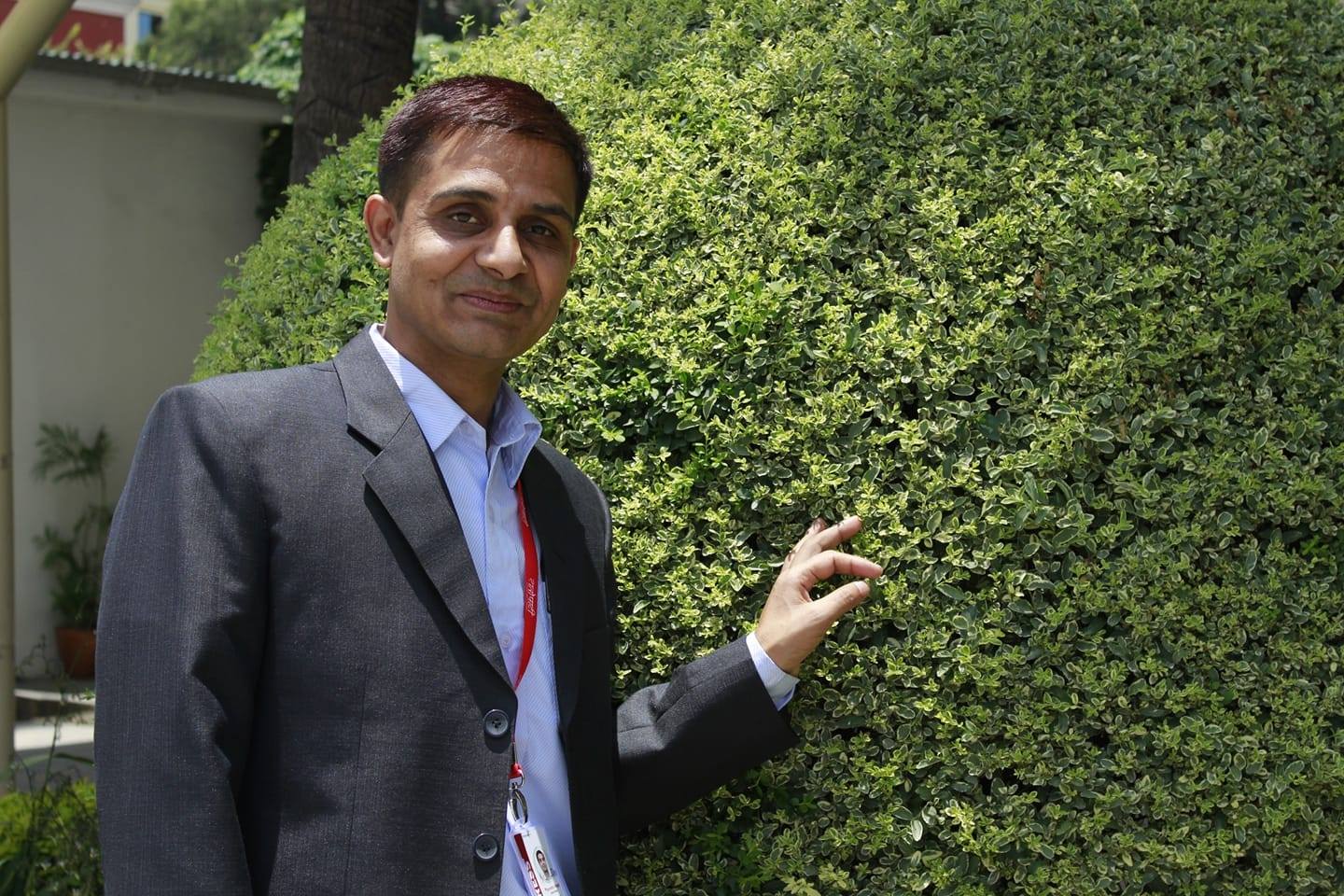Dissatisfaction in CPN (US): Chair Nepal engages discontented leaders

Kathmandu, September 27 — The uncertainty surrounding the internal conflict within the CPN (Unified Socialist) following the 10th General Convention remains unresolved.
Amid this uncertainty, a seven-member task force, including Chair Madhav Kumar Nepal, is actively working to divide responsibilities among the leaders. However, due to competition for leadership of key departments, including district in-charges and co-in-charges, it has been challenging for Chair Nepal to finalize the divisions, according to the leaders.
Dissatisfaction within the party has steadily increased since the convention held in July, where 90 central committee members were unanimously declared elected, contrary to the convention hall's mandate to select the chair, general secretary, and esteemed leaders unanimously.
The flawed practices that occurred during the selection of officials and politburo members have led some leaders and activists to consider leaving the party.
To address the dissatisfaction, Chair Madhav Kumar Nepal and senior leaders like Rajendra Pandey and General Secretary Ghanshyam Bhusal are maintaining direct and indirect dialogues with the discontented leaders and activists.
In this context, Chair Nepal held discussions with Ram Kumari Jhankri, who has expressed strong dissatisfaction and has become inactive in party work after supporting the formation of a new party following her rebellion against UML. After Jhankri, Nepal also discussed matters with leaders Hari Parajuli, Urbadatta Panta, and Alok Rayamajhi.
Chair Nepal is also preparing to meet leaders Prem Ale, Dhan Bahadur Budha, and Kisan Shrestha. He plans to first reach out to them through his close contacts before arranging direct meetings, according to sources close to him.
If the leaders threatening to leave can be retained, Chair Nepal is willing to assign them significant responsibilities.
Chair Nepal has received information that the government may issue an ordinance around Dashain to facilitate the exit of dissatisfied leaders.
Following this information, which has circulated within the party, Chair Nepal has decided to understand the sentiments of the discontented leaders before finalizing a new division of responsibilities. He is confirming his strategy by advancing both the task force meeting and discussions with the dissatisfied leaders simultaneously.
As the task force continues its groundwork for responsibility division, there is a strong opinion among some members that the old leaders should retain the responsibilities of district in-charges and co-in-charges. Conversely, some believe new leaders should be given the opportunity to move the party forward, making the distribution of responsibilities a contentious issue among leaders.
"Chair Madhav Kumar Nepal wants to appoint the old leaders as district in-charges. However, some leaders, including Jhalanath Khanal, believe the party organization should progress with new leaders instead of repeating the old ones," said an UML official. "This is the main contentious issue in the division of responsibilities." Some newly elected central committee members are also vying for the position of district in-charge this time.
There is also competition among leaders for leadership of important departments within the party. Central officials are responsible for leading these departments.
The CPN (Unified Socialist) has 31 central departments, 24 mass organizations, and 3 central commissions.
Among these, there is intense competition among officials for leadership positions in departments such as the school department, organization department, publicity department, political affairs department, finance department, foreign affairs department, and front organization department.
Before the convention, Jhalanath Khanal led the foreign affairs department, Rajendra Prasad Pandey led the political affairs department, Pramesh Hamal led the school department, Beduram Bhusal led the organization department, Dr. Gangala Tuladhar managed the central office and disaster management and education department, Dr. Bijay Paudel was in charge of the front, and Jagannath Khatiwada led the publicity department.
Khanal proposes dissolution of officials and politburo
While Chair Nepal is working to placate dissatisfied leaders, esteemed leader Jhalanath Khanal has put forth a new proposal to dissolve the previously selected officials and politburo committee.
According to a Unified Socialist leader, Khanal submitted this proposal in writing on September 22. With nearly three months since the convention concluded, he argues that the previous officials and politburo committee should be dissolved to give new shape to those committees, although another leader claims there is no justification for this.
"Khanal's proposal is nonsensical, untimely, and lacks political and moral justification," said an official. It is worth noting that during the convention held in July, only the chair and two other officials were unanimously declared, with Khanal himself announcing that 90 politburo members were unanimously declared central members.
In his proposal, Khanal mentions the need to dissolve 18 out of 21 officials and the 90-member politburo. He claims the selection process for those officials and the politburo was fundamentally flawed.
Khanal stated that there is a distinction between communist and bourgeois parties, noting that while bourgeois parties may overlook mistakes and weaknesses, a communist party's approach is fundamentally different. He explained, "A communist party can make mistakes, but when it realizes those mistakes, it must review them, identify its shortcomings, self-criticize, rectify them decisively, and resolve not to repeat such mistakes in the future."
Khanal argues that the 10th General Convention provided a mandate to move forward with policy and leadership development, but the leadership's inability to stand firmly on that issue has led to problems within the party. Therefore, he insists that all issues should be resolved based on the mandate provided by the convention.
Khanal claims that it is not necessary to hold elections when forming a politburo from central committee.
"The general imbalance arises when efforts are made to conduct evaluations based on general elections within the party," he stated in his written demand, "Thus, the method of forming a politburo and electing certain party officials is incorrect. The improperly conducted elections should be annulled, and new officials and a politburo should be selected unanimously from a new foundation."
Khanal argues that only by dissolving the officials and politburo can the overall dissatisfaction and opposition currently manifesting in the party be addressed, fostering a new sense of unity that can help move the entire party forward.
Discussions regarding Khanal's proposal have become a topic of debate in the standing committee and central committee meetings.
"Khanal's proposal is indeed a topic for discussion within the party committee, but it is unlikely to be debated until December. By then, the significance of this proposal may diminish, leading to its eventual dismissal," said a Unified Socialist official.
According to that official, Khanal himself may not be confident that his proposal will be approved. He may have proposed the dissolution of officials and the politburo to appease those leaders who followed him and lost.










Leave Comment